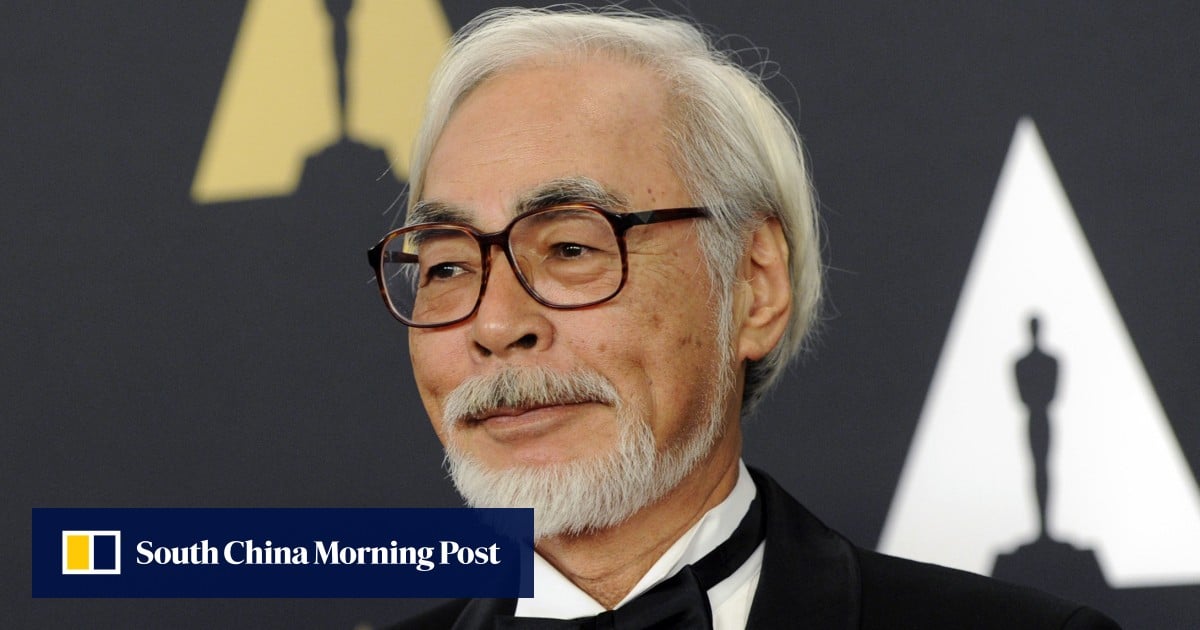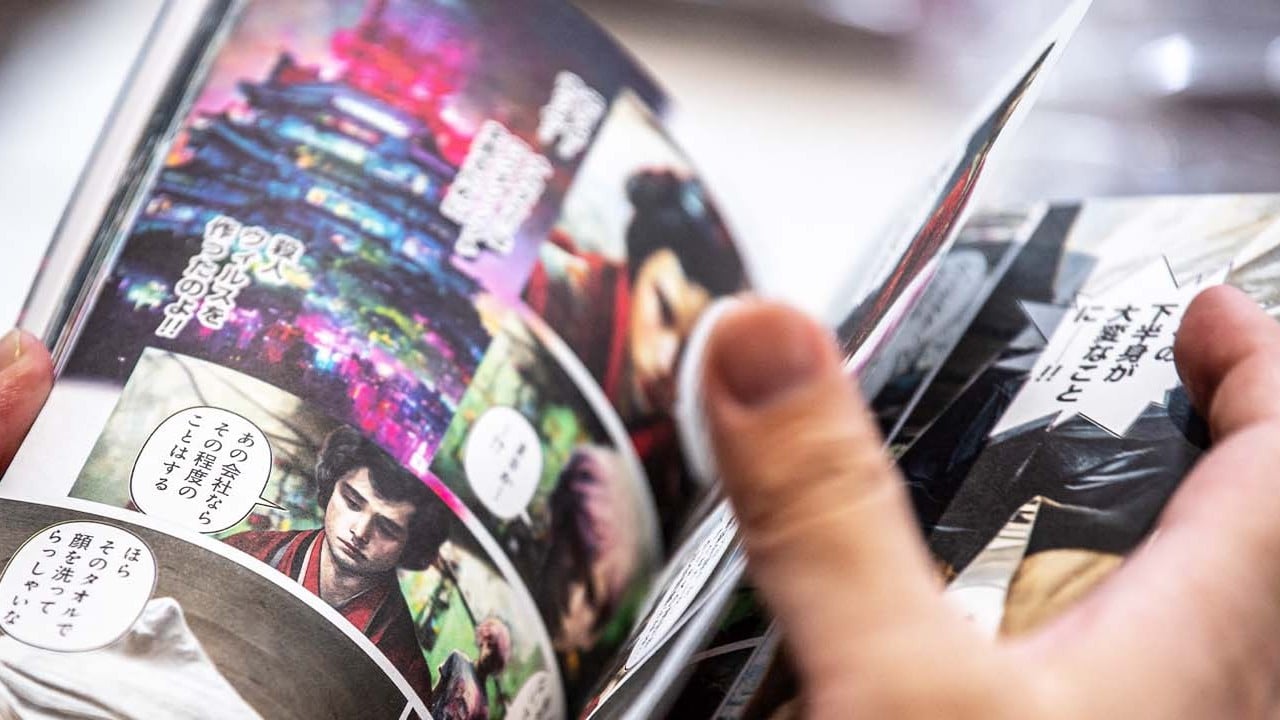The blended responses got here regardless of Miyazaki’s well-known anti-war stance in Japan, the place he made headlines in 2015 for urging his nation’s leaders “to say clearly that aggressive war was completely wrong, having brought enormous damage to the Chinese people”.
Some Chinese nationalists have argued that Miyazaki’s anti-war stance is hypocritical as his newest movie portrays Japanese characters in a sympathetic mild and as victims of the warfare.
Deep bother: China’s nationalists, boiling mad, put drinks agency in sizzling water
Deep bother: China’s nationalists, boiling mad, put drinks agency in sizzling water
Sheng Zou, an interdisciplinary media scholar at Hong Kong Baptist University, mentioned Miyazaki’s newest work obtained criticism in China partially as a result of it contained plenty of summary symbols “open to many different kinds of interpretations”.
“[The film] gives you different ways to read the plot and to read different characters. So I would say it’s sometimes contradictory, sometimes inconsistent, that’s also why people feel confused.”
Zou mentioned that ambiguity was difficult for viewers, “especially if they are not very familiar with Miyazaki’s own personal life history, his own childhood, his family” and the historic background.
He added that nationalistic sentiment may need contributed to criticism concerning the film’s stance on the warfare.
“When it comes to [the movie’s attitude towards the war], I think you could easily imagine there is going to be some kind of nationalist sentiment involved. But I think there are other kinds of viewpoints that are broader than just expression of nationalism.”
Chinese state media say Netflix’s 3 Body Problem pushes US ‘cultural hegemony’
Chinese state media say Netflix’s 3 Body Problem pushes US ‘cultural hegemony’
The movie was a field workplace hit in China, incomes 693 million yuan (US$95.7 million) as of Friday, making it Miyazaki’s bestselling work within the nation. The movie took 46 per cent of the overall field workplace earnings in the course of the three-day Ching Ming Festival vacation earlier this month.
However, on Douban, the nation’s best-known movie assessment website, it scored 7.7 out of 10 – decrease than Miyazaki’s earlier works, which have scores of 8 or 9.
Many criticisms have centred on the metaphors used within the movie, with some accusing Miyazaki of being “hypocritical” and “vague” about his anti-war stance.
“The movie shamelessly packages Japan as a victim of war, and stops short of talking about why Tokyo was bombed … The film adds all kinds of metaphors, but they lack sincerity on truly reflecting on the war,” one movie blogger wrote on social media platform Weibo.
Another influencer with greater than 5.3 million Weibo followers acknowledged Miyazaki’s anti-war stance but in addition mentioned “his view on history has limits”.
“Yes, the Japanese people also suffered a lot, but that’s because they lost the war. What if they had won?” he wrote.
“If you want to talk about suffering, other countries that were invaded by Japan suffered much more. And after all, it was still the choice of the people at the time who supported Japanese fascism and militarism that came to power.”
Narrative warfare: China’s TikTok customers are being informed that Aristotle didn’t exist
Narrative warfare: China’s TikTok customers are being informed that Aristotle didn’t exist
But many Chinese viewers praised Miyazaki’s visuals and storytelling and recognised the complexity of the filmmaker’s reflections on the warfare.
“The visual language of Miyazaki’s work is rich, cohesive, and sincere,” one Douban reviewer wrote, score the movie extremely.
“Why did his country become so crazy, greedy, and dangerous in the second world war? Miyazaki feels the pain but he can’t simply hate his country … The film, using many metaphors, takes away a lot of clarity from the storytelling, but the director’s own very personal and even incompletely digested emotions are ultimately difficult to articulate,” the assessment mentioned.
A mainland-based political scientist, who requested anonymity due to the sensitivity of the subject, mentioned that over the previous decade, some criticisms of Japan had turn out to be extra excessive as a part of a revival of populism and ultra-leftist views within the nation.
“If it was 10 or 20 years ago, no one would judge or criticise Miyazaki’s works with the angle [that we see today],” the scholar mentioned, including that “the public understands that he is not defending militarism”.
“But now we see some with ultranationalist and leftist views judge works of art, and it is sometimes extreme, especially in recent years,” the scholar mentioned.
According to the scholar, these extra excessive views are associated to Beijing’s tightly managed historic narratives, which oppose something that doesn’t toe the official line or help nationwide rejuvenation.
The scholar warned that the tough stance adopted by Beijing may “hurt objective presentation of history” and reinforce nationalist sentiment.
The scholar famous that this development paralleled the tensions in Sino-Japanese ties, together with China’s “intense opposition” to Japan’s Fukushima water launch and its criticism of nearer ties between Tokyo and Washington.
“The sharp criticism is obviously a signal to civil society … and such an attitude has quite an influence on those radical voices,” the scholar mentioned.
Some viewers have referred to as for extra nuance in assessing Miyazaki’s works. In a assessment printed on WeChat that has earned round 100,000 views, the creator argued that Miyazaki’s movie was important of Japan’s position within the warfare.
“At the end of the film, [the protagonist’s action] shows that Miyazaki is criticising the ruling power’s control over ideology and the military as well as their greed. He’s not targeting the people,” the article mentioned.
Cao Xuenan, assistant professor of cultural research on the Chinese University of Hong Kong, mentioned the movie was “very easy to interpret in whichever direction one wants” as a result of it relied so closely on symbolism.
“Any interpretation of a very open text shows us much more about the mindset of the interpreter, instead of the director’s intention,” Cao mentioned.
Although Miyazaki’s earlier works additionally touched on complicated themes, they’d not been the goal of Chinese nationalist critique “because there is not much room for such interpretation”, she mentioned.



